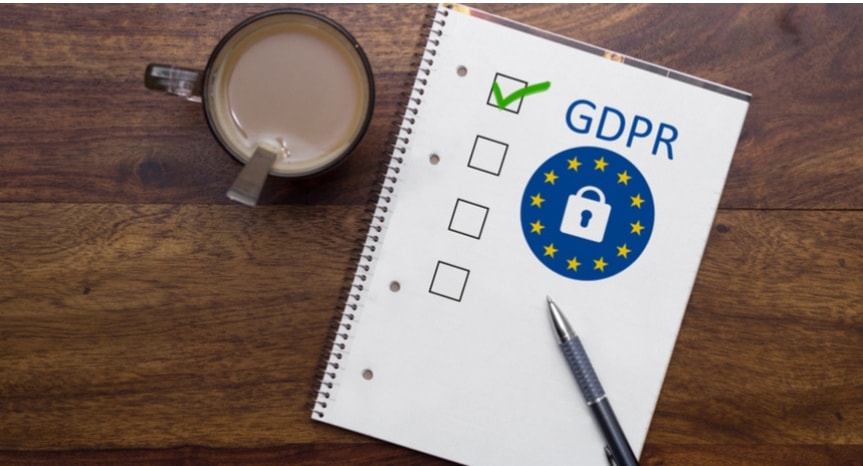GDPR Checklist – Practices to adopt as Business Norms

It’s been a little over eight months since the GDPR came into effect on 25 May 2018. From that point onwards all organizations are expected to be compliant, however many companies from the EU are either still in the process of GDPR compliance or finalizing their programs GDPR Checklist. For people who still do not know about GDPR, General Data Protection Regulation is an EU based regulation that is responsible for data protection and privacy of individuals belonging from the EU. The regulation applies to businesses operating within the EU or external ones, who deal in the personal data of EU citizens, data subjects as they call it.
The fundamental principals of the GDPR are fairly straightforward, however, bringing an entire organization on the same page is crucial. To legally meet each and every provision of the regulation can be quite complex and intricate to understand. For this reason, higher management and compliance officers need a GDPR checklist for business to stay up to date with this data privacy regulation.
GDPR Checklist – Aspects for Business To Consider
Like any responsible company that respects the privacy and security of data, it is important that you should assess aspects of your business model that requires you to collect personal information from your incoming users. Whether it is for customer due diligence or a KYC for ICO process, It is always important to be aware of the compliance guidelines that govern your data collection practices and how that data is used for service delivery to customers. This assessment is known as DPIA – Data Protection Impact Assesment. ICO and blockchain based ventures have to be specially careful about such business practices in order to gain legtimacy and credibility.
- Businesses should assess what data do they collect and have the necessary consents been sought before any collection. Companies should also be clear and documented in their purpose of data collection in addition to relevant data collection only. All this data should be considered a risk and necessary safeguards should be thought for data security and protection. This also includes a holistic overview of the data flow in a company and highlight any cross border data transfers into third countries or jurisdictional bounds.

GDPR Checklist – Necessary Measures in Accountability and Control
GDPR measures need an adequate representation of accountability and control to ensure the rightful assessment conducted in prior can be implemented to the best.
- For businesses, it is absolutely crucial to place a person in authority to deal in all matters of GDPR compliance – A DPO or data protection officer. Also under control is to proactively inform a relevant security team of their obligations under the GDPR. A major element under this stage is Consent Management. Does the company have the procedures to handle requests from data subject in reference to, Deletion, Modification, and Access? For effective monitoring of requests, tools of alerts and notifications are important in GDPR Compliance. Companies need to have in place the required training to ensure uniform awareness regarding Data privacy to employees of the company. To ensure responsible handling of data and their relevant requests. To ensure data protection regulations are not breached after initial implementations. Review and auditory practices should be implemented to keep a check on data storage and conformity to regulations.
Mandatory Documentation and Listed Work-Flow
No regulation can be practiced if there is no necessary documentation put in place before. Documentation provides a visual representation of transparency to onlookers. This includes the end-users and the general public and to the company itself. Documented workflow represents a companies testament of clarity to end-user rights.
- A privacy policy is a must-have document for companies pursuing GDPR compliance. If the company already has it, what are the required changes to be made in accordance with the guidelines of the GDPR? Does the company have adequate documentation of its business processes in easy writing, to facilitate an immediate request by a customer? An important part under documentation are contracts, these include contracts between Data Controller and Data Processor. This also includes any documents that provide information between partnerships with third-party vendors who provide service involving PII data. A company should have necessary policies in a document that highlight the data retention periods and the types of data retained by a company.
Carrying Forward GDPR Mindset
In all likelihood, all guidelines of the GDPR are irrelevant if the company does not have the necessary business aptitude to undertake such compliance irrespective of how important the implementation of the regulation is for the company. For businesses, GDPR is no certification that a company can easily acquire, but rather a regulation that wants deep-change within the operating mechanism to embed the changes required by the regulation. KYC industry is an ideal example, where companies have to deal in the preservation of data and address its security and privacy in accordance with the GDPR. These identity verification services, such as Shufti, have to facilitate user requests regarding collected data while effectively negotiating with customers.
Implementing GDPR is no simple task for businesses, as the complexities of the regulation require a deep understanding, to begin with. The implementation of the regulations can be initiated through a simple GDPR checklist before any expensive consultations, saving companies any additional cost. Companies nearing complete GDPR compliance have higher chances to reap the full benefits of trouble-free and smooth operations.
Recommended For You:
Shufti GDPR Review 2018: How we protected our clients from regulatory fines?

 Explore Now
Explore Now













